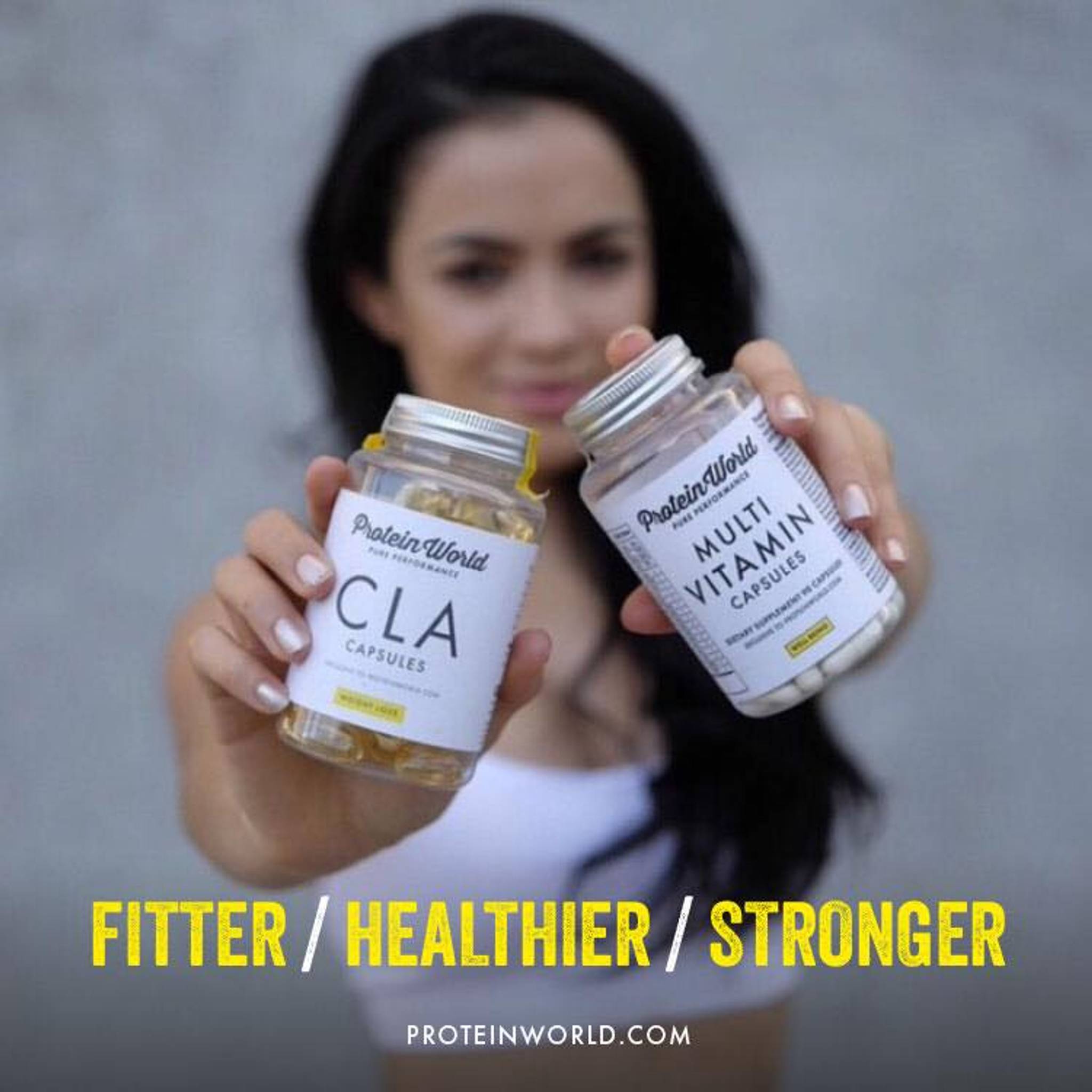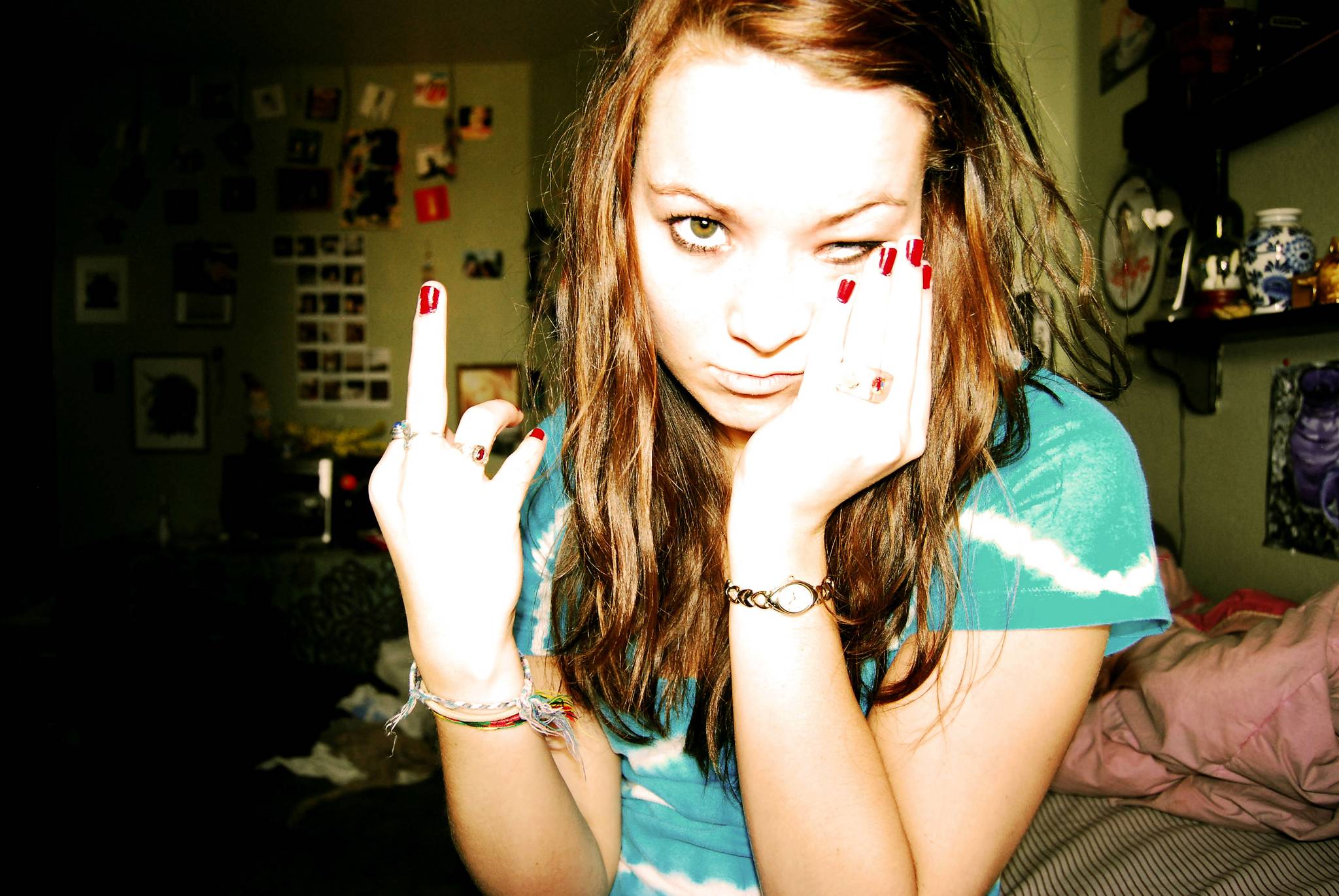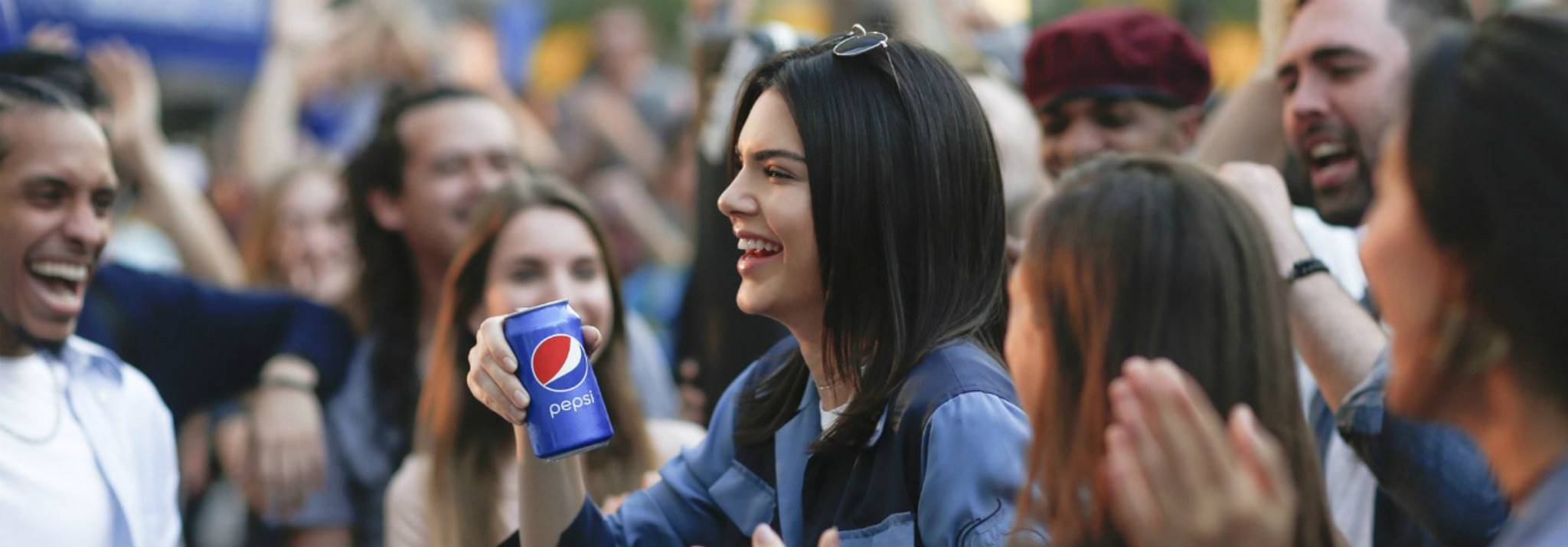
Who knew Kendall Jenner, a can of Pepsi and a staged protest could’ve been such a recipe for disaster? Clearly not Pepsi’s in-house creative team, who were responsible for the much-maligned spot. But while the ad clearly missed the mark, it’s also a cautionary tale regarding the power of the crowd, and the internet’s tendency to revel in outrage. We explore the science that explains why.
----
People don’t want to see iconic moments appropriated
Some of the most poignant elements of the maligned ad spot were the references to monumental cultural moments. The Vietnam war-era ‘flower power’ protestor placing carnations in soldiers’ rifles and the recent image of the serene woman protesting as part of the #BlackLivesMatter movement are both iconic in their powerful depiction of how people can drive positive social change.
Using a cold can of soda to ease tensions between parties while nodding to these events was broadly considered to have widely missed the mark, landing more in the field of distasteful appropriation than respectful allegiance. “I get it now,” read one Tweet. “If Black Lives Matter protesters would've handed a Pepsi to the cops they wouldn’t of gotten tear-gassed. It's so clear now.” People aren’t exclusively nostalgic for times in their own pasts – ‘anemoia’ is a phenomenon of nostalgia for times you never personally knew, and Pepsi’s trivialisation of these events hit home for people the world over. History is important, and brands should tread carefully when encroaching on moments from the past that revolve around the pain and suffering of marginalised populations.
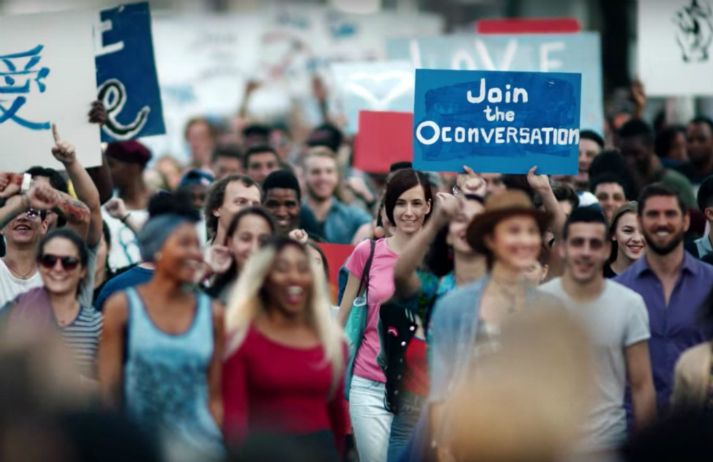
People don’t respond well to branded insincerity
The protests banners featured in Pepsi’s staged parade featured generalised statements including ‘Love’, ‘Peace’ and ‘Join the conversation’. Pepsi not only showed a lack of understanding of the plight of any justice movement in particular, but it simultaneously made numerous sweeping statements about what it stands for as an organisation.
It’s no secret that people want brands to rise to society’s challenges and take on more of a ‘shared values’ approach – 85% of consumers think brands should play a bigger role in society. And although these expectations are growing, the desire to do good needs to be genuine – not just a PR-friendly add on. ”Change efforts should be based on a good understanding of the systemic and disruptive forces at play in society today,” says Effenus Henderson, co-founder at the Institute for Sustainable Diversity and Inclusion.
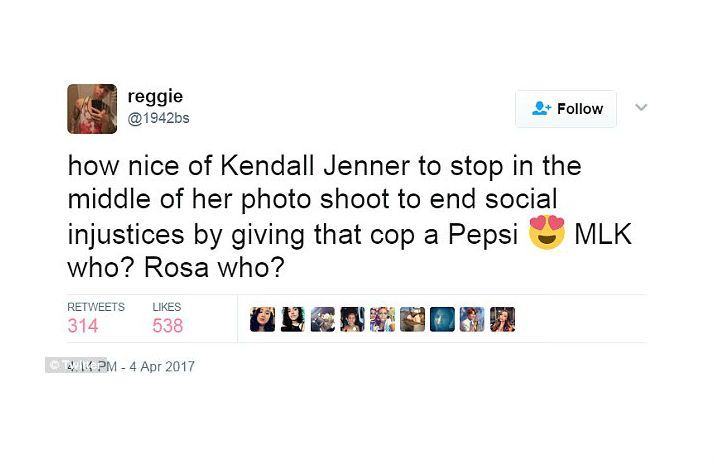
People are skeptical about celebrity endorsements
Sat amid the controversy around the spot itself was the fact that Kendall Jenner had been tasked with endorsing the product. While the parade-cum-protest occurred nearby, she lounged in front of photographers nearby, before eventually deserting her post to join the march to take on her role as a peace-bringer.
Celebrity endorsements are old hat, but digitisation has bred a discerning consumer that demands transparency, leaving these partnerships feeling inauthentic; just 17% of British adults and 15% of Americans trust them. And with Jenner hailing from one of the most controversial families in Hollywood, renowned for their excessiveness, self-involvement and vapidity, her presence only fuelled the fire Pepsi had set for itself.
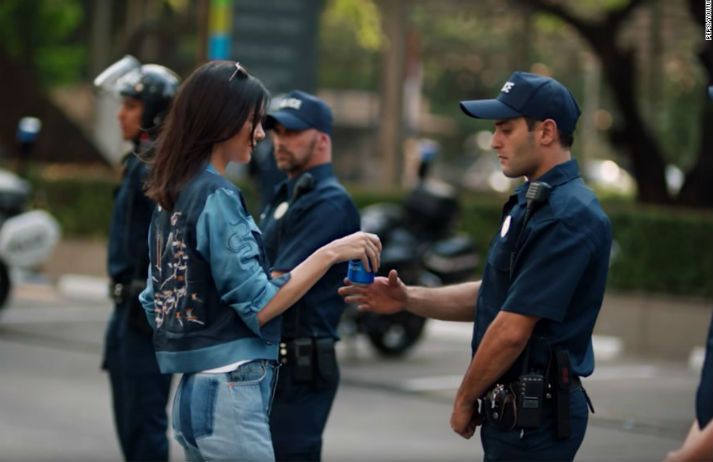
People simply love to hate
Whether it’s a celebrity, a cringe-worthy news moment or the discontinuing of our favourite snack – people love to be outraged. But some people are more prone to express moral outrage, and they’re doing it on social media.Click-through rates on negative headlines are 63% higher than those with positive superlatives, meaning this outrage spreads at a dramatic rate, with people using it as a form of social-currency,
Psychologists suggest this show of outrage advertises a person’s views and allegiances to potential allies. And the more popular a victim's cause, the less risky it is to join in displaying your umbrage. So with more people likely to share things based on their world view, thousands, if not millions quickly hopped on the Pepsi-hating bandwagon.
"Pepsi was trying to project a global a message of unity, peace and understanding,” cited Pepsi in a statement to announce that it would be pulling the ad just 24 hours after airing it. “Clearly, we missed the mark, and we apologise. We did not intend to make light of any serious issue.” But it was too late – the damage had already been done. The frenzy of disdain the campaign had created became a social event in itself.
And while social conversations around the brand lifted by an impressive 366% in just a single day, 43% of those mentioned Black Lives Matter, 31% labeled the ad “tone-deaf” and 10% condemned it as the “worst ever.” Pepsi may have united the internet, but it was clearly for all the wrong reasons. What remains to be seen is whether it will impact the brand’s sales. Back in 2015, Protein World pissed off the internet and saw nothing less than a boost of 5,000 customers. “To be universally liked is to be relatively ignored,” writes Christian Rudder in his book Dataclysm. “To be disliked by someone is to be loved all the more by others.” And one thing’s for sure – right now, Pepsi is far from universally liked.
Hannah Callaghan is an account executive at Canvas8, which specialises in behavioural insights and consumer research. When she’s not helping clients navigate the deepest layers of the Canvas8 Library, she’s probably binge-watching RuPaul’s Drag Race or befriending other people’s dogs.
Lore Oxford is cultural editor at Canvas8, which specialises in behavioural insights and consumer research. She previously ran her own science and technology publication and was a columnist for Dazed and Confused. When she’s not analysing human behaviour, she can be found defending anything from selfie culture to the Kardashians from contemporary culture snobs.
